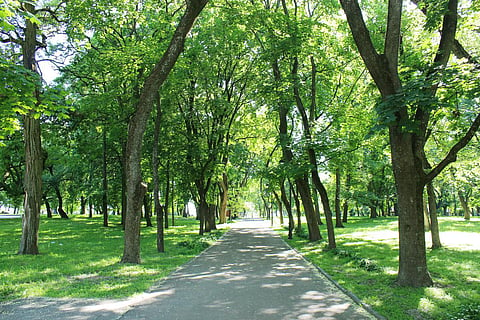WEDNESDAY, Oct. 23, 2024 (HealthDay News) -- Urban green spaces appear to play an important role in mitigating heat-related health risks, according to a review published online Oct. 22 in BMJ Open.
Ahsana Nazish, from the London School of Hygiene & Tropical Medicine, and colleagues conducted a systematic literature review to assess the impact of urban green spaces on heat-related morbidity and mortality.
Based on 12 included studies, predominantly from high-income and upper-middle-income nations, the researchers found a pattern in which regions abundant in green spaces report lower rates of heat-related morbidity and mortality in contrast to those with sparse greenery. Urban vegetation also appeared to exert a positive influence on mental health and well-being, potentially aiding in offsetting the adverse health repercussions of high temperatures.
"It is important to note that more research is needed to fully understand the extent of the impact of urban greenery on heat-related morbidity and mortality, and how it interacts with other factors such as air pollution, socioeconomic status among others," the authors write. "Urban green spaces play a vital role in mitigating heat-related health risks, offering a potential strategy for urban planning to address climate change and enhance public health."
Abstract/Full Text


